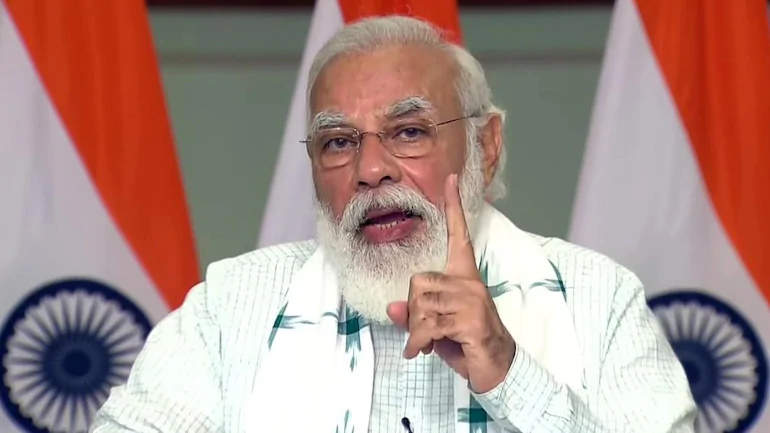
SOURCE: INDIA TODAY
Prime Minister Narendra Modi today emphasised his government’s commitments to opening up the defence sector to reform during a webinar ‘Atmanirbhar Bharat-Defence Outreach’ organised by FICCI, the Department of Military Affairs (DMA) and the ministry of defence. “Our commitment towards self-sufficiency in defence production is not limited to talks or paperbound proposals, we have taken several steps to realise this,” said the PM.
The government has recently begun one of the most sweeping changes in the defence sector under its atmanirbhar (self-reliant) policy—the reboot of its failed Make in India defence programme from Modi’s first term is now being pushed directly by the Prime Minister’s Office.
The defence ministry has, in the past few weeks, unveiled a series of reforms—from a decision to corporatise 41 government-owned ordnance factories, to getting the ministry to release a negative list of 101 items banned for import, and getting the DRDO to identify 108 products for which it would partner with indigenous industry to co-develop. The defence ministry has assured the Indian defence industry of orders worth Rs 400,000 crore in the next five to seven years. BJP-ruled states like Uttar Pradesh are pushing for defence corridors to attract defence firms to set up manufacturing facilities.
Modi’s unscheduled appearance at the webinar attended by key defence ministry, public sector and private industry representatives left no doubt in anyone’s mind as to the seriousness with which the government was pursuing defence reforms, or as to who was driving it. Participants at the webinar included defence minister Rajnath Singh, chief of defence staff General Bipin Rawat, secretary (defence production) Raj Kumar and the three service chiefs.
The most significant statement was by Raj Kumar when he said that “Indian vendor could mean a foreign subsidiary, joint ventures and fully-owned Indian companies.” This is being seen as an extension of the government’s decision in May this year to allow foreign investors to own up to 74 per cent stake in an Indian defence firm, up from the earlier 49 per cent.
The CEO of a private sector firm has called the move to consider foreign companies as Indian vendors a ‘most regressive step in Indian defence industry’, since it means foreign firms will now be able to enter and compete with Indian firms in categories like ‘buy Indian’ and ‘Indian designed developed and manufactured (IDDM)’, which were earlier reserved only for Indian companies. The executive says: “There is no incentive for Indian companies to do anything but partner with a foreign company since the capital that goes in will anyway pale in comparison to what the foreign companies have pumped into R&D over decades.”
A senior government official, who wished to not be named, says the policy would mean that foreign companies would set up their subsidiaries in India to import the equipment in sub sections and integrate them here to deliver to the defence ministry. “In times of war, these subsidiaries will supply only when their countries allow them to do so. This will be a disaster for Atmanirbhar Bharat.”
Rahul Chaudhry, chair, FICCI Homeland Security Committee, terms the arguments against bringing foreign companies in India as the ‘Bombay Club arguments of 1992’ (the argument by Indian industrialists at the dawn of India’s liberalisation against liberalisation and the entry of foreign firms).“What is required is value addition,” says Chaudhry. “Value addition is equal to jobs and to intellectual property. It is absolutely clear from the Make in India general financial rules (GFR) that the government has begun to talk about value additions in India and not about which company or equity holder is doing it.”






